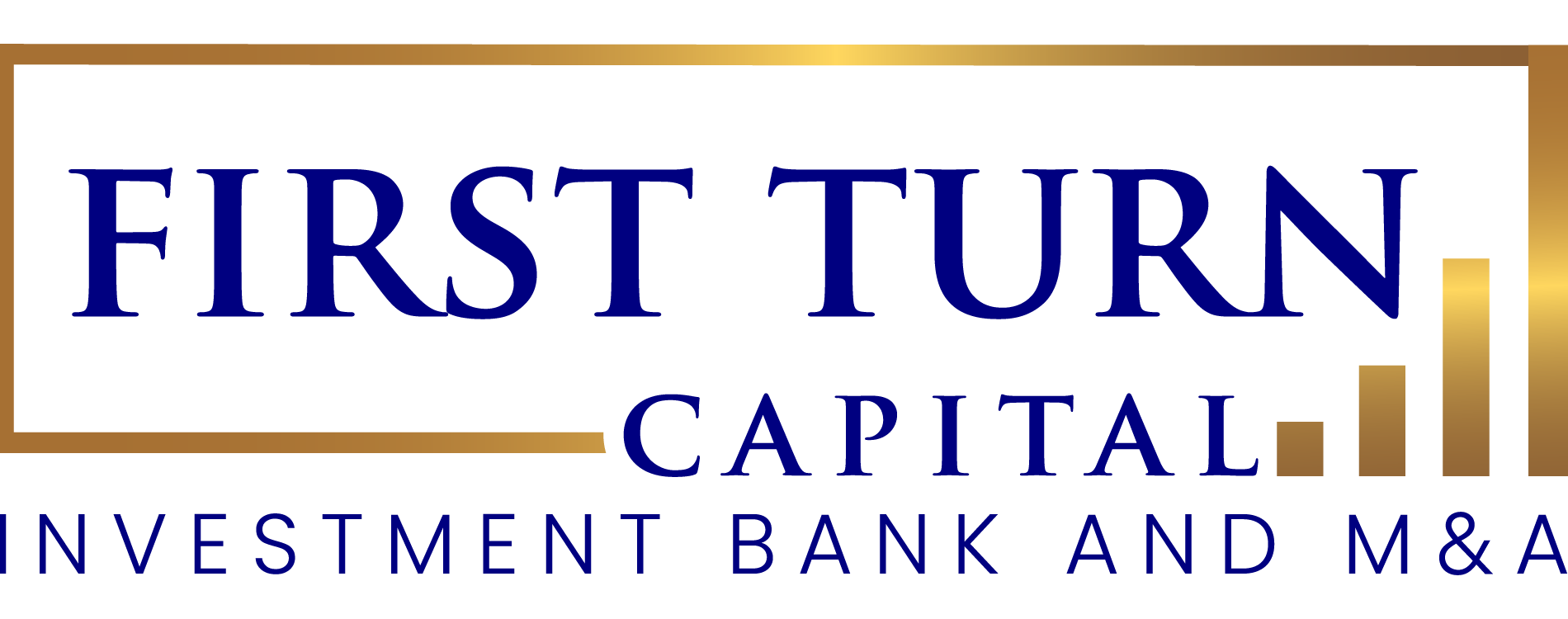Frequently Asked Questions
Your Questions Answered (FAQs)
Investment Banking FAQs
How does investment banking work?
Investment banking helps companies and organizations raise capital and manage major financial transactions (e.g., executing deals). In essence, investment banks act as intermediaries between businesses and investors.
Who is an investment banking analyst?
An investment banking analyst is an entry-level professional in an investment bank who assists with financial modeling, market research, and deal execution.
What are the different types of investment banking?
Investment banking covers several specialized areas, including mergers and acquisitions (M&A) advisory, equity capital markets (ECM), debt capital markets (DCM), restructuring and turnaround advisory, and private placements and alternative investments. First Turn Capital provides a full suite of investment banking services to support businesses throughout their financial ventures.
What is the difference between investment banking and commercial banking?
Investment banking deals with large-scale financial transactions, such as raising capital, M&A advisory, and corporate finance. Meanwhile, commercial banking provides traditional banking services, including capital solutions, credit lines, and deposit accounts for both businesses and individuals.
What is an initial public offering (IPO), and how does it work?
An initial public offering (IPO) is when a private company sells shares to the public for the first time, becoming a publicly traded company. This process involves preparing financial statements and regulatory filings, determining the valuation of shares, and engaging institutional investors through roadshows and marketing. First Turn Capital guides clients through every step.
How do companies raise capital through investment banking?
Companies often raise capital through equity financing (issuing shares to investors in public or private markets), debt financing (raising funds through bonds, capital solutions, or credit facilities), or hybrid financing (using a combination of debt and equity, such as convertible bonds).
What is a high-yield bond?
A high-yield bond, or a junk bond, is a corporate bond with a lower credit rating. This means it offers higher interest rates to compensate for increased risk. First Turn Capital helps companies structure high-yield bonds that attract investors while managing financial risk.
What are investment-grade bonds?
Investment-grade bonds are corporate bonds issued by companies with strong credit ratings. They offer lower risk and lower interest rates compared to high-yield bonds. First Turn Capital assists businesses in issuing investment-grade bonds in an efficient manner.
What’s the difference between debt capital markets and equity markets?
Debt capital markets (DCM) involve companies raising funds through bonds and capital solutions, repaying investors with interest. Equity capital markets (ECM), on the other hand, is where companies issue shares and give investors ownership stakes in exchange for money. At First Turn Capital, we help determine the right financing mix for our clients’ capital needs.
What is a leveraged buyout (LBO)?
A leveraged buyout (LBO) refers to when a company is acquired using a large amount of borrowed money. The acquired company’s cash flow is then used to repay the debt over time.
What is mezzanine financing?
Mezzanine financing is a hybrid of debt and equity financing, where investors provide capital solutions that can convert into equity if not repaid.
What is the purpose of restructuring advisory?
Restructuring advisors help companies reorganize their debt, renegotiate terms, and stabilize their financial performance in the long term.
What is sell-side vs. buy-side advisory?
Sell-side advisors assist companies in selling assets or businesses, while buy-side advisors help investors or companies acquire a business. First Turn Capital provides expert services for both.
Mergers and Acquisitions FAQs
What services does First Turn Capital offer?
We provide mergers and acquisitions advisory, strategic capital advisory, and value growth consulting for middle-market companies.
How do you value a company for acquisition?
We assess a company’s value using methods like discounted cash flow analysis, comparable company analysis, and precedent transactions to determine its fair market value.
Who can benefit from your services?
Our services are tailored for private business owners in the middle market across sectors like energy, industrial, business services, software, and tech.
How does First Turn Capital assist in selling a business?
We guide business owners through the entire selling process, from valuation and market positioning to negotiations and closing the deal.
What is the process for acquiring a business with your help?
We assist with identifying targets, conducting due diligence, structuring the deal, and post-acquisition integration to ensure a smooth transition.
What type of solutions do you offer?
We offer private capital solutions, including debt, equity, and structured options, tailored to businesses outgrowing conventional funding sources.
How do I prepare my business for investor scrutiny?
We help businesses prepare by conducting thorough due diligence, improving financial reporting, and addressing any operational inefficiencies.
How do you protect my business information?
We adhere to strict confidentiality agreements and protocols to protect sensitive business information throughout the M&A process.
What is involved in value growth consulting?
Our consulting services focus on enhancing business worth, streamlining operations, and improving financial performance to make your business an attractive target for buyers.
What should I consider before selling my business?
Important considerations include business valuation, market conditions, tax implications, and personal goals for the sale.
What are the different types of M&A transactions?
M&A transactions can include mergers, acquisitions, consolidations, tender offers, and asset purchases, each with unique considerations and benefits.
How can I finance an acquisition?
We assist in securing various financing options, including bank capital solutions, private equity, and mezzanine financing, tailored to your acquisition needs.
How long does the M&A process typically take?
The timeline for M&A transactions can vary widely depending on the complexity of the deal, ranging from several months to over a year.
What is due diligence, and why is it important?
Due diligence is a comprehensive appraisal of a business conducted by potential buyers to understand the business’s assets, liabilities, and overall health, ensuring informed decision-making.
